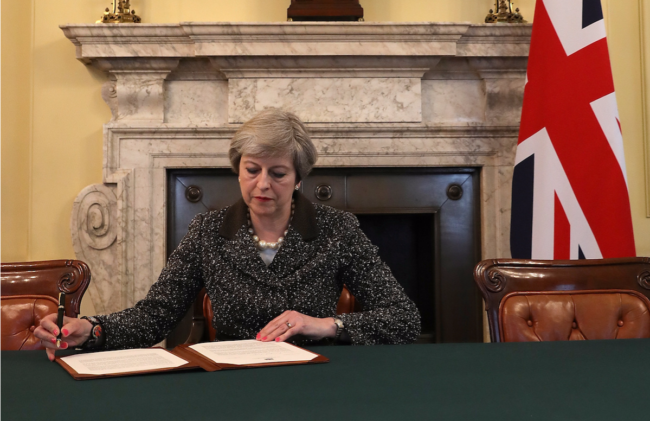As MP’s prepare to vote on Theresa May’s deal for the fourth time, with the added enticement of the opportunity to vote on whether to hold another referendum, new research reveals that 61% of people who confirmed they would vote in a second referendum, and currently have a preference, want the UK to remain in the EU.
If people were given the choice between accepting Theresa May’s deal or remaining in the EU, the overwhelming majority would vote to remain with 61% of those who confirmed they would vote and currently have a preference, stated they wanted the UK to remain in the EU.
The growing support to remain in the EU is clearly shown by the survey result. Even when given the 3 options of remaining in the EU, accepting Theresa May’s deal or exiting the EU with no deal the majority still confirmed they would vote to remain:
The majority of those who confirmed they would vote and currently have a preference want to remain in the EU.
Surprisingly 3 times as many people confirmed they would vote for a No Deal exit rather than accept the terms negotiated by the Government.
What has become clear from the research is that people want an end to the uncertainty, even if this means taking the drastic step of leaving the EU without a negotiated deal, rather than accept the compromise of the current deal on the table.
The research also uncovered that 1 in 10 Brits blame Brexit for why they’ve delayed making key financial decisions.
One in 10 have put off important financial decisions, such as buying their first home, moving house, spending money on home improvements, investing and making major purchases such as a car, until the future of Brexit is clear.
In London this figures rises to 1 in 5 who have delayed key financial decisions as a direct result of Brexit.
In Wales 15% have been affected and in Scotland the figure is 14% that have postponed major financial decisions, clearly showing that this is a nationwide issue.
Holly Andrews, Managing Director at KIS Finance, that commissioned YouGov, says: “We’ve seen a definite increase in the demand for re-bridging finance as properties are not selling as quickly. We are also doing more re-mortgages now than we were before due to people choosing to stay put and sit out Brexit uncertainty. To date, we’ve not seen any rate changes related to Brexit on the mortgage front, but with bridging, the Loan to Value limits are dropping with some lenders and underwriters being more cautious with their lending decisions. The longer the whole Brexit debate continues the more significant the problems for the finance sector will become”


